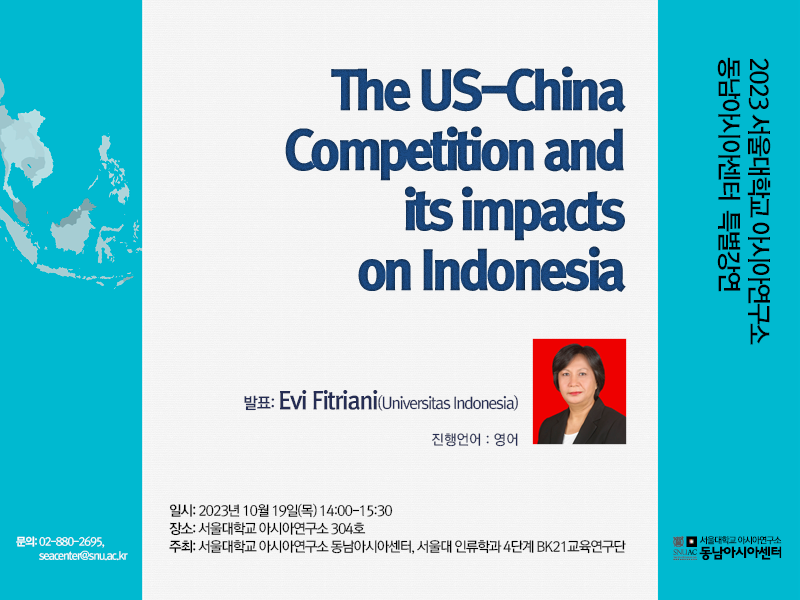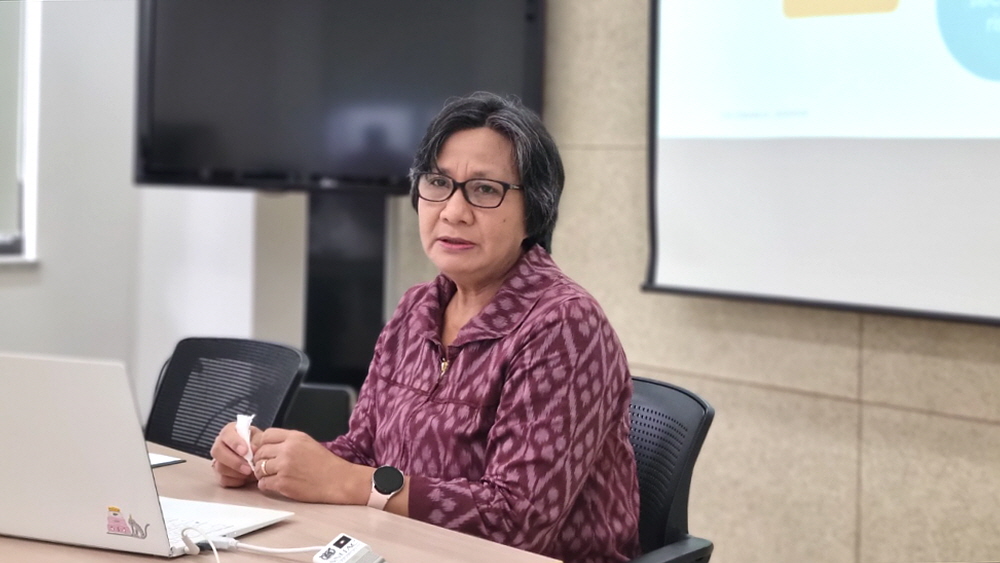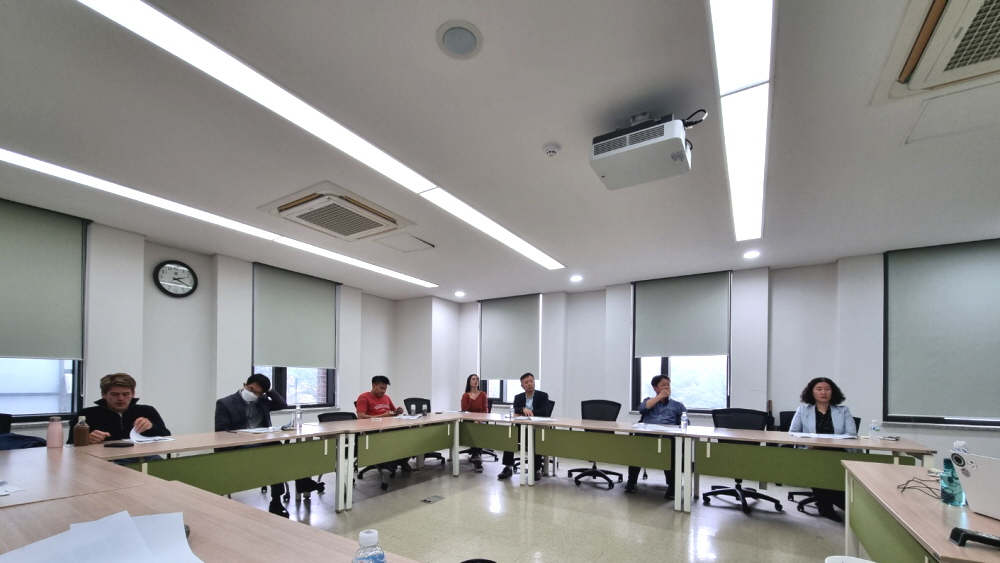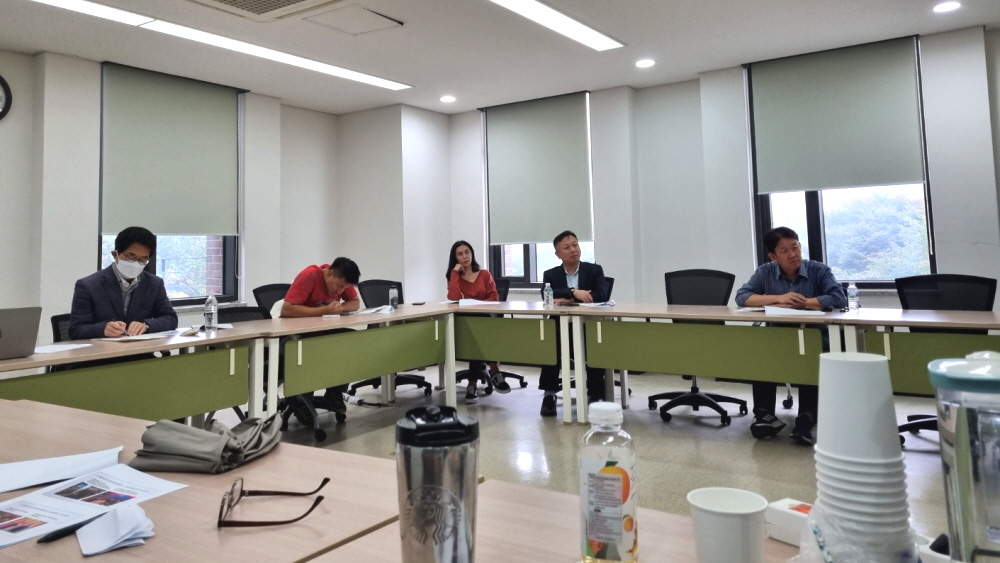
China’s rise has been perceived as threats not only to the liberal world order but also to the domination of the USA and Western countries. In the last five years the competitive relations between the US and China have intensified from trade-economic activities to access to rare-earth minerals, and to technological advancement. Unavoidably, the development of geopolitical tension between the two countries has affected international/regional stability and cooperation on global agenda in recent years. Their strategies of “de-coupling” or “de-risking” to each other appear to create some degrees of fragmentation in what was previously perceived as our globalized and interdependent world.
This presentation will discuss how developing countries like Indonesia have strived to maintain its relevance and roles in global governance to voice out the interests of countries in the Global South and to emphasize that the world’s agenda cannot be merely encapsulated into the big powers’ interests. In the past, with its “Bebas Aktif” (Independent and Active) foreign policy principle, Indonesia managed to survive the West-East Block competition of the Cold War. Nowadays, Indonesia’s foreign policy has been put under pressures as the geopolitical tension between the two big powers links directly and indirectly to the country’s economic development and technology acquisition. Indeed, the impacts of the US-China competition on Indonesian domestic politics cannot be undermined, especially because the country will have presidential election in 2024. Indonesia has had unease experiences with both Americans and Chinese in the past, thus the country strives not to be preoccupied by either side believing that the country’s interests are best served by being “independent” from both sides and by maintaining multilateralism in world politics. Regional and global institutions like ASEAN and G20, as well as MIKTA and ASEAN Pus Three (ten ASEAN countries plus Japan, China, and Korea) play important roles in Indonesian strategy to navigate current turbulent geopolitics.
발표자 : Evi Fitriani / Professor / Universitas Indonesia
발표자 약력 : Evi Fitriani is a Professor of International Relations, Faculty of Social and Political Sciences, Universitas Indonesia and the head of International Relations Department from 2012 to 2016. She was co-founder of the University’s Master Program of European Studies as well as the ASEAN Study Center of FISIP UI. She is also the Indonesian Country Coordinator of the Network of East Asian Think-tanks (NEAT), the Track-2 of ASEAN Plus Three (APT). She completed the doctorate program in Political Science and International Relations from the Australian National University (ANU) in 2011. She was trained in international relations discipline in Indonesia, the UK, and the USA, as well as in Japan, Sweden, the Netherlands, and Hungary. She has obtained more than 13 international awards and grants. She became a visiting professor at the University of Melbourne in Australia and Meiji University in Japan (2016-2019). Professor Fitriani’s research interests include Indonesian foreign policy, ASEAN, Asian regionalism and China, East Asian affairs, Indonesia-Australia relations, Asia-Europe relations, and Indonesia’s land border. She published numerous journal articles and book chapters, as well as provided policy recommendation to Indonesian Government, APT Summits, EU, and ASEM.
Photos
Review
동남아시아센터의 이번 초청강연에서는 인도네시아 대학의 Evi Fitriani 선생님을 모시고 미국과 중국 간의 경쟁이 인도네시아에 미치는 영향에 대해 살펴보았다. 두 국가 간의 알력 다툼은 접경지역이 아닌 인도네시아를 포함한 동남아 국가들에 큰 영향을 미치고 있다. 특히 두 국가의 정치 경제적 영향력을 무시할 수 없는 실정에서 Evi Fitriani는 인도네시아의 상황을 안보, 경제, 기술, 국내 정치라는 네 영역으로 구분하여 설명한다. Evi Fitriani는 중요한 네 영역에 영향을 받고 있는 것도 사실이지만, 오히려 이러한 상황이 인도네시아에게는 기회가 될 수 있음을 설파했다. 그녀는 미-중 사이에서 누구도 쉽게 선택할 수 없는 상황에서 새로운 협력국을 찾거나 스스로 발전하여 인도네시아를 새로운 방향으로 나아가게 할 수 있다고 이야기 했다.
이후 토론에서 청중들은 이런 인도네시아의 상황과 크게 다르지 않은 한국의 입장에서 인도네시아와 한국이 어떤 협력 관계를 가질 수 있는지, 한국과 인도네시아가 영향을 받는 부분에서 그리고 대처해 나갈 수 있는 방안 측면에서 어떠한 차이를 보인다고 생각하는지 등에 대해서 질문하였고, 강연자는 인도네시아의 상황과 한국의 상황이 매우 다를 수밖에 없음을 설명하고, 이후 두 국가가 긍정적인 관계를 설정해 나갈 가능성에 대해 이야기 했다.








